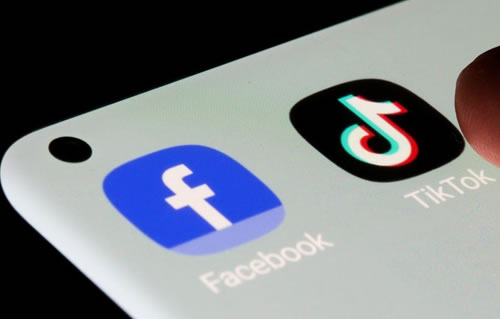The social media platform Telegram uses an algorithm that promotes extremist content, a new study shared exclusively with the BBC has revealed. The report, from the US civil rights organisation the Southern Poverty Law Center (SPLC), found that the "similar channels" feature introduced last year recommends extremist channels even to users browsing subjects such as celebrities or technology. A professor also showed BBC Panorama how he found someone within moments on Telegram who offered to ship an Uzi submachine gun to the UK for £850. Telegram says users are "only presented with content they have chosen to engage with" and it removes millions of pieces of harmful content daily. The company's founder, Russian billionaire Pavel Durov, is under formal investigation in France accused of failing to stop criminality on his platform. He has denied the allegations. Best known as a messaging app marketed with secretive features, Telegram also allows its almost one billion users to set up groups where they can broadcast messages and videos to up to 200,000 people at a time. SPLC researchers looked at 28,000 of these Telegram channels for their report Telegram's Toxic Recommendations. It found that users browsing mundane topics would be recommended extreme content - while users looking at one form of extreme content, such as anti-government conspiracies, would be pushed towards other extremist ideologies such as antisemitism or white nationalism.
Lead researcher Megan Squire demonstrated how the algorithm works by searching for "Donald Trump" in a newly set up Telegram account.
Immediately in the "similar channels" recommendations were multiple examples of channels promoting the Q-Anon conspiracy, which maintains with zero evidence that Mr Trump is waging a secret war against elite Satan-worshipping paedophiles in government, business and the media.
Another search for "UK riots" showed a meme about Adolf Hitler as the first result, followed by suggestions for a series of channels run by violent far-right groups.
A middle-aged woman with straight auburn hair to her shoulder. She is wearing a formal grey jacket and black top. She is sitting in a room with a lamp, window and table in the background.
"On a [digital threat] scale of one to 10, Telegram I would say is an 11," says researcher Megan Squire
"Some of these groups are pretty active. You're not just on Telegram getting memes, you're getting shuffled into to actual events. They're having events on the ground with people showing up," Ms Squire said.
In the hours after the Southport knife attack in August, which prompted riots, Telegram users posted some of the first calls for protest, along with false claims the suspected attacker was an asylum seeker.
Ms Squire told BBC Panorama that the research showed Telegram had become a "digital threat".
"On a scale of one to 10, Telegram I would say is an 11. It's dishing out enormous amounts of criminal content, extremist content. It is extremely dangerous in my opinion," she said.
A former insider who was part of Telegram's inner circle for six years, Elies Campo, told Panorama that he had challenged Pavel Durov about extreme material in 2021.
"His stance was it's not up to a platform like us to decide who should be speaking out. It was clear that he didn't want to dedicate more resources to it," Mr Campo said.
"I think if he could choose, he would choose more a stand where he doesn't have to moderate anything."
Prof David Maimon from Georgia State University, who has spent six years studying illegal content on Telegram, said there were tens of thousands of channels offering everything from tools for scammers to guns.
Source : https://www.bbc.com/news/articles/cvgrvw29x4jo





